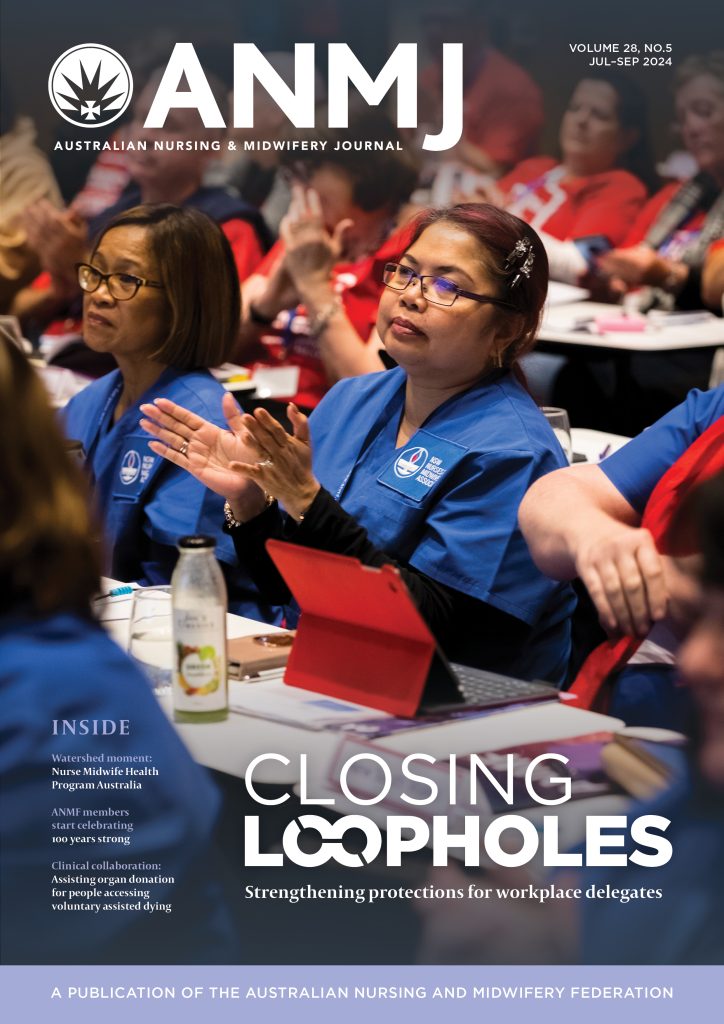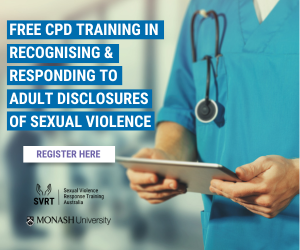Celeste, from Nurse & Midwife Support, shares strategies to help you manage and relieve your anxiety.
Everyone experiences anxiety at certain times in their life. But when our anxiety becomes chronic or relentless it can create chaos in our lives and make us feel paralysed.
Experiencing stress where we ‘peak and recover’ can be good for our body, according to Elisa Epel, psychologist, stress expert and author of The Seven-Day Stress Prescription — but if we feel stressed all the time, it can cause anxiety.
We shouldn’t aim to completely rid ourselves of anxiety, but instead take steps to reduce it so that we feel more capable and less in its control.
Anxiety is more common than you may think
Anxiety is the most common mental health condition in Australia. According to the Black Dog Institute, it affects a third of women and one-fifth of men at some stage in their lives.
Anxiety is more prevalent amongst nurses and midwives than the general population. Studies report rates between 20% and 38% in midwives and 40 to 60% in nurses.
Nurse and midwives: vulnerable to anxiety
Our work conditions place us at higher risk of becoming anxious. We are exposed to:
- high workloads
- sleep deprivation
- shift work
- time constraints
- lack of professional support
- vicarious trauma and
- staffing issues.
Lack of work/life balance, conflict with other colleagues and difficulties saying no when asked to do more at work also contribute to anxiety.
Anxiety can impact performance, patient care and job satisfaction and the ability to offer empathy.
Anxiety as a response to threat
Anxiety can keep us safe from danger. When we perceive a threat, it causes us to go into ‘fight, flight or freeze’. This is the limbic system, the brain that is involved in emotions, memory and behaviour, working overtime to try to protect us from perceived threats.
Sometimes we can become so anxious that it affects our daily life. The Black Dog Institute explains:
“When we’re very anxious, we have intense feelings of worry or distress that are not easy to control. Anxiety can interfere with how we go about our everyday lives, and make it hard to cope with ‘normal’ challenges.”
Anxiety affects how we think, feel and behave
It can:
- produce feelings of unease, worry, nervousness, tension, numbness, fear and paralysis
- make us focus and worry about future events
- manifest as heart palpitations, high blood pressure, irritability, sweating
- reduce your focus
- cause gut discomfort or pain
- disturb your sleep.
As a nurse or a midwife, anxiety can affect the way you function at work.
High risk groups
Nurses and midwives are more likely to experience anxiety if they:
We are all at risk of compassion fatigue, as our work exposes us to the suffering of others.
Causes of anxiety
Complex factors may combine to cause anxiety. They include lifestyle and personality types, genetic and biological factors, substance abuse, other mental health issues, life events such as trauma, abuse, or the loss of a loved one.
Coping with and calming anxiety
The good news is that you can relieve your anxiety. The brain can change itself, through a process called neuroplasticity. Catherine Pittman, professor of psychology tells us:
“The circuits of your brain aren’t determined completely by genetics, they’re also shaped by your experiences and the way you think and behave. There are limits, but there’s also a surprising level of flexibility and potential for change in your brain, including changing its tendency to create problematic levels of anxiety.”
Try these strategies to relieve your anxiety:
- care for yourself – rest, get quality sleep and eat well
- make regular exercise part of your routine
- practice breathing techniques
- challenge your negative self-talk
- be kind to yourself
- ask for help when you are struggling – talk to us!
Bring focus to glimmers
Another way to begin to shift anxiety is to focus on cues of safety that help bring us back to calm and connection. Clinician and complex trauma expert Deb Dana coined the term ‘glimmers’. This is the opposite of ‘triggers’.
Glimmers help us to pay attention to small moments of contentedness and joy such as listening to soothing sounds, feeling the warm sun on our skin or laughing with a friend. Over time this helps to train the brain to notice the positive around us which helps to build a stronger sense of safety.
Reaching out for support is important if you are experiencing anxiety. You don’t have to go it alone. Call Nurse & Midwife Support on 1800 667 877 anytime to talk or visit https://www.nmsupport.org.au/










One Response
Good,helpful,compassionate advice
The Nursing environment can be harsh